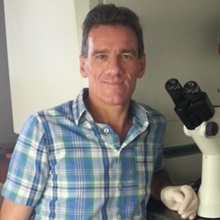Overcoming the strong drive to overeat and obesity with negative impacts on life expectancy and life quality is of upmost and crucial importance for individuals with Prader-Willi syndrome (PWS) and their families. Despite advances in understanding the genetic causes of PWS and the establishment of different mouse models that mimic some clinical components, the actual cause of PWS is not known and no animal model exists with the equivalent overeating and obesity of PWS. The minipig is a large mammal with a similar body and organ size and physiology to human. Further, many human diseases are clinically similar in the pig including for “metabolic disorder” (i.e., obesity, diabetes, and atherosclerosis). In our recent work, we have established for the first time a minipig model of PWS as well as normal “carrier” animals that will be used in this project for breeding to generate a larger number of PWS minipigs for experimental study. Second, this project will provide in depth clinical and neurobehavioral characterization of the PWS minipigs that we predict will display the overeating, obesity, and other clinical features of PWS. Indeed, preliminary analyses indicate mild failure-to-thrive with growth retardation and episodes of hypoglycemia in newborns, as found in human. Third, in this project we will assess the genetic pathways that lead to the clinical features of PWS. The successful outcome of this work will provide the foundation that is critical for future in depth dietary, pathological, neuroimaging, behavioral, and molecular studies that will lead to an understanding of exactly how the PWS genes control how much is eaten and/or how the process of eating at the end of a meal is stopped (i.e., satiety), how that energy is excessively stored and results in obesity, and the basis of disordered body composition (increased fat tissue and decreased muscle mass) even in the absence of excess eating. Our pig models of PWS, expected to include hyperphagia, obesity, behavioral problems, scoliosis, and other clinical features, will provide a pre-clinical large animal model for the future development and/or testing of therapeutic approaches, whether these involve dietary, surgical, pharmacological, genetic, stem cell, and/or neural transplantation approaches. Consequently, the proposed project will greatly benefit PWS research by providing an essential means for understanding the clinical basis including hyperphagia and obesity and for establishing new therapies.
Funded Year:
2018
Awarded to:
Robert Nicholls, PhD
Amount:
$119,073
Institution:
University of Pittsburgh
Researcher:





